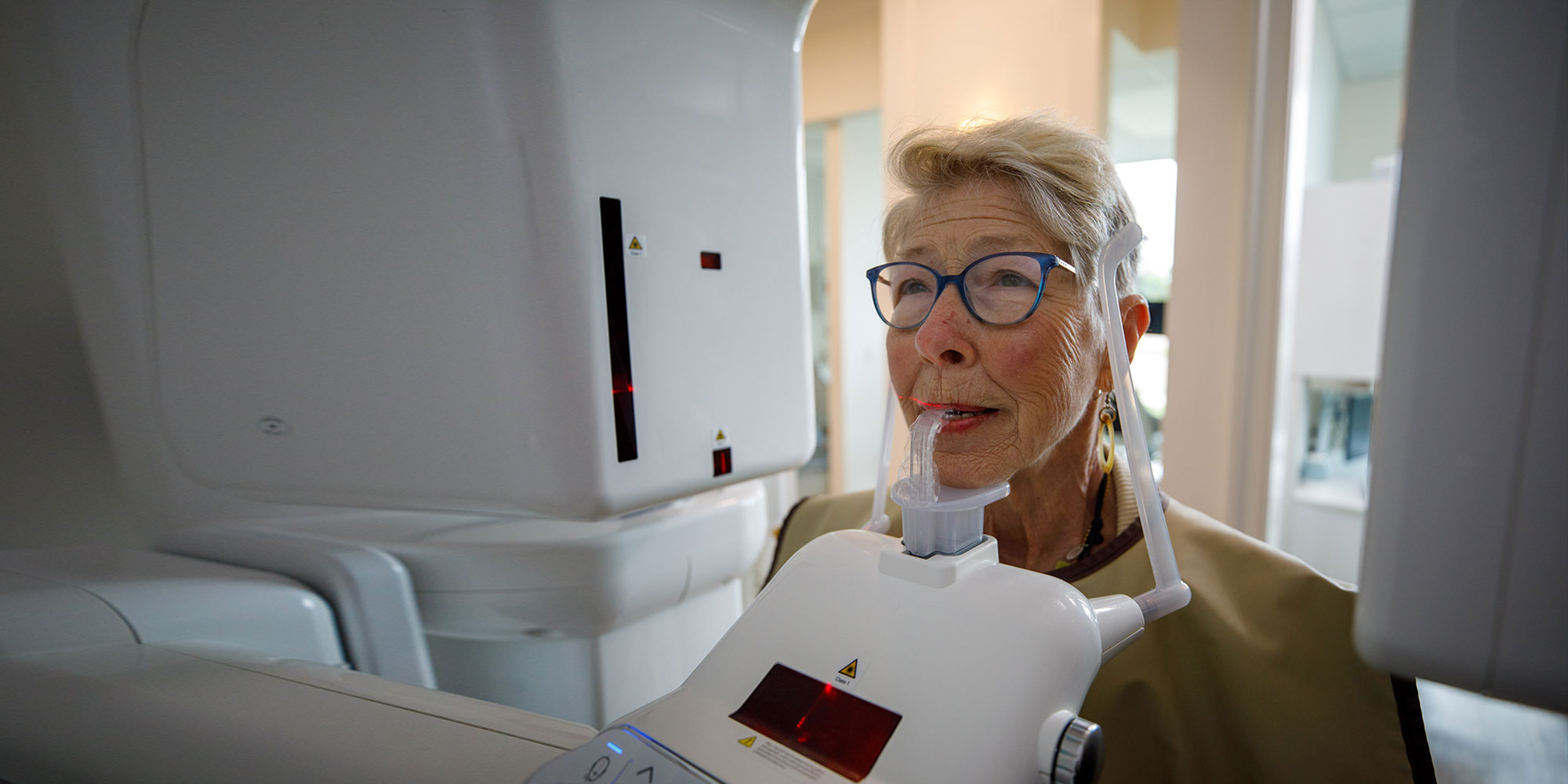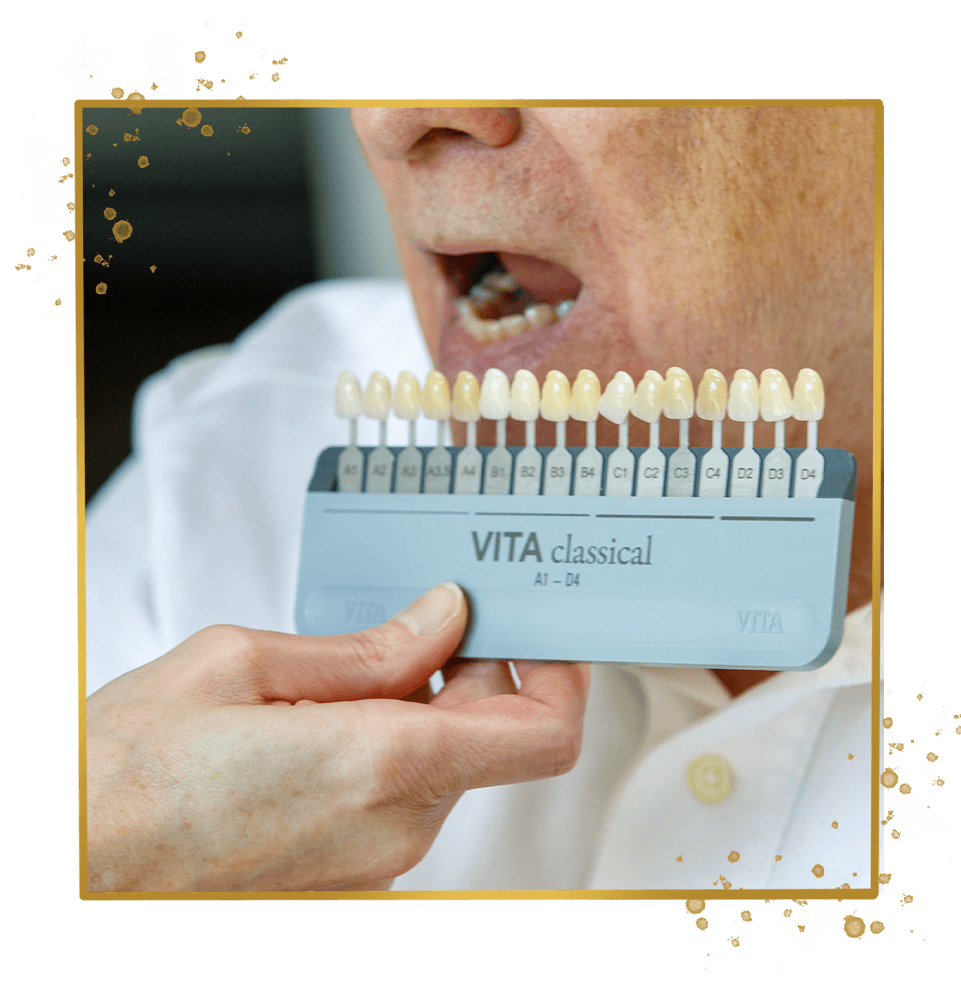
Cosmetic flaws in your smile, no matter how big or small, can make you feel less than confident about your appearance. Chipped, cracked, missing, and discolored teeth are smile imperfections that your cosmetic dentist can correct at Cornerstone Dentistry. Dr. Keleigh Lascari has helped patients in Covington, LA, address big and small smile imperfections.
Our smile makeover services address cosmetic flaws from the foundation up, ensuring the best outcome for your smile and oral health. Schedule a visit with Cornerstone Dentistry today for a consultation with Dr. Lascari and begin designing your dream smile!
A smile makeover is a personalized treatment plan utilizing a combination of cosmetic dentistry services to achieve your desired look and restore optimal oral health. The process of a smile makeover differs from patient to patient since each has unique needs. The type of services, time to complete, and pricing can vary. Services can include a purely aesthetic treatment like teeth whitening or restorative services like dental crowns.
As your restoration dentist, Dr. Lascari can evaluate your smile and determine the best smile makeover plan to help you achieve your goals. Cornerstone Dentistry provides a wide variety of aesthetic dentistry services to meet all your needs: correct cosmetic flaws and underlying oral health concerns with our cosmetic dentistry services. We promise you will be amazed at the results!

As the premier cosmetic dentistry office in Covington, LA, we can custom-create your complete smile and design a treatment plan based on your dental concerns, smile goals, and budget. We believe everyone should love their smile, which is why we provide affordable cosmetic dentistry services and partner with competitive third-party financing companies to help make your dream smile a reality.
We will begin with a consultation with Dr. Lascari, who will perform a thorough examination of your current oral health and obtain digital scans and diagnostics. We will discuss your dental concerns and smile goals and create a personalized treatment plan to adhere to your smile goals. The combination of treatments required to complete your smile makeover depends on the cosmetic flaws you would like to address, oral health, and budget.
Once your treatment is complete, you can begin enjoying your new smile and feel confident showing it off. At Cornerstone Dentistry, we will help you learn how to care for your refreshed smile to ensure it lasts for years to come!
Dental crowns and bridges are restorative treatments that address damaged and missing teeth. A dental crown is a cap placed on top of a single restored tooth damaged by disease or trauma.
A bridge is a row of prosthetic teeth created to replace sections of two or more missing teeth and anchored on either side by a crown. Your dental crown or bridge is designed to look natural and blend in with the adjacent teeth.
Porcelain veneers are thin covers placed on the surface of your front teeth to create a perfect look. They are durable and easy to place throughout two appointments with very little prep time.
Veneers are shaped and color-matched to look natural and blend with the surrounding teeth. They are ideal for covering chipped and discolored teeth.
Teeth whitening reverses staining and yellowing caused by food, drinks, aging, and smoking. Cornerstone Dentistry offers take-home teeth whitening kits with professional-grade results.
Custom whitening trays ensure trays fit perfectly in your mouth for optimum results. Achieve a brighter smile in the comfort of your own home!
An occlusal adjustment addresses bite issues caused by problematic contact patterns of your tooth surfaces. Dr. Lascari will strategically smooth down tooth surfaces to improve your overall bite.
This service aids in preventing and alleviating jaw issues. Occlusal adjustments can also treat mild cases of misaligned or crooked teeth without the aid of orthodontia.


If you're a good candidate for veneers
Digital Smile Design to show you what you will look like with your new veneers!
Pricing and options for treatment
And best of all... a time to speak directly with Dr. Lascari. Top Cosmetic Dentists in LA!
